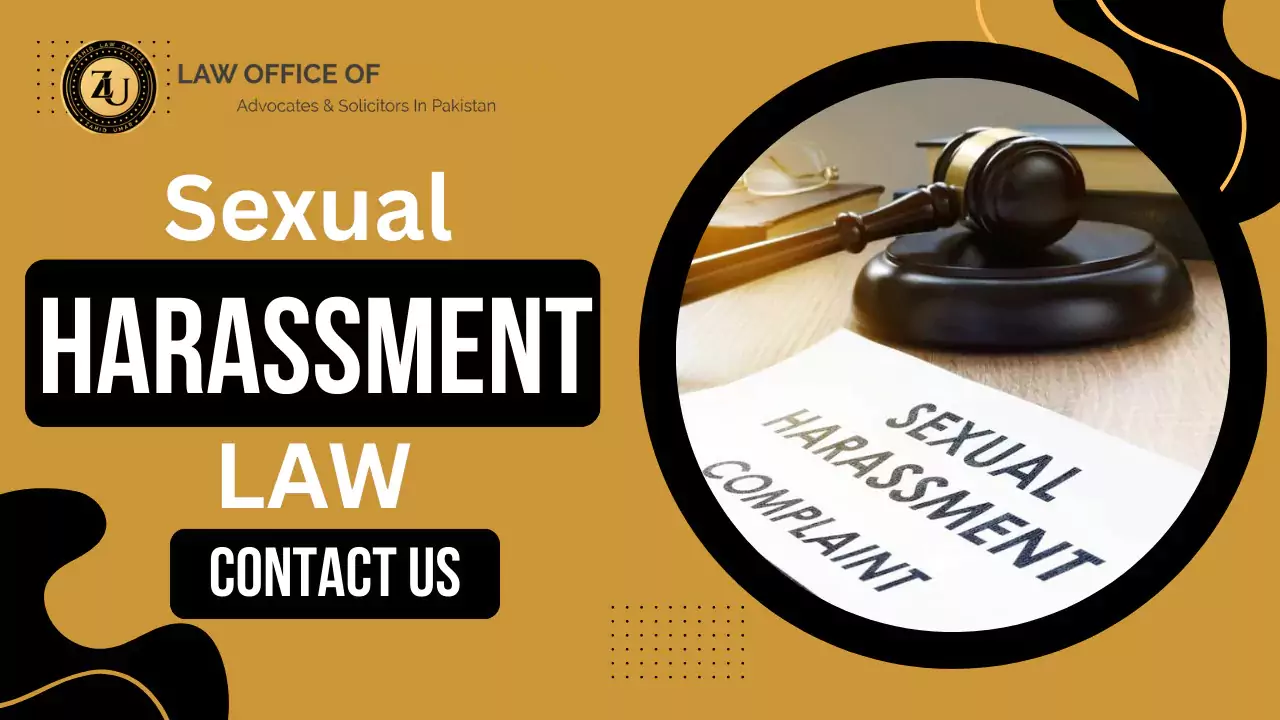Sexual Harassment Laws in Lahore Pakistan
As a family lawyer in Lahore, I understand how important it is to have clear and easy-to-understand information about your rights. Sexual harassment is a serious issue, and it’s essential to know the laws that protect you. This guide will explain the laws in Pakistan that address sexual harassment, especially in workplaces, and how you can seek help if needed.
What Is Sexual Harassment?
Sexual harassment includes any unwelcome behavior of a sexual nature that makes someone feel uncomfortable, scared, or disrespected. This can happen in various places, including workplaces, schools, and public areas. Examples include:
- Unwanted physical contact
- Inappropriate comments or jokes
- Sending suggestive messages or images
- Stalking or following someone
- Making someone feel unsafe or threatened
Key Laws Against Sexual Harassment in Pakistan
1. Protection Against Harassment of Women at the Workplace Act, 2010
This law was created to protect women from harassment at work. It defines harassment and sets up a system for complaints and investigations.
2. Amendment in 2022
In 2022, the law was updated to include all forms of harassment, not just sexual. This means that any unfair treatment based on gender is also considered harassment.
3. Pakistan Penal Code – Section 509
This section makes it a crime to insult or harm someone’s modesty, especially a woman’s. It covers actions like making offensive gestures or comments.
How to Report Harassment
If you experience harassment, you have several options:
Internal Committee: Many workplaces have a committee to handle harassment complaints. You can report the issue to them.
Ombudsperson: Each province has an ombudsperson who deals with harassment cases. In Punjab, you can contact the Punjab Ombudsperson.
Police: If the harassment is severe, you can file a report with the police.
Remember, it’s important to report harassment as soon as possible and keep any evidence, like messages or photos, to support your case.
Challenges and How to Overcome Them
Despite the existence of laws to protect against sexual harassment, many individuals still encounter difficulties. One major challenge is the fear of retaliation. Victims may hesitate to come forward because they worry about losing their jobs or facing other negative consequences.
Another significant issue is the lack of awareness. Many people are unaware of their rights and do not know how to report harassment when it happens. This lack of knowledge can prevent victims from taking the necessary steps to protect themselves.
Additionally, weak enforcement of laws is a common problem. Even when harassment cases are reported, there are instances where the laws are not enforced properly, allowing perpetrators to escape punishment.
To address these challenges, it is essential for individuals to educate themselves and others about their rights. By being informed, people can recognize harassment and take action when necessary. It is equally important to support victims by encouraging them to speak out and seek help.
Support and Resources
Fortunately, there are several organizations available to offer assistance to those facing harassment. The Digital Rights Foundation is one such organization, providing support for victims of online harassment. Legal Aid Centers are also available, offering free legal advice and assistance to those in need. Additionally, various women’s rights organizations offer counseling and support services to help victims recover from the emotional and psychological effects of harassment.
If you or someone you know needs legal help, consider reaching out to a family lawyer in Lahore who specializes in harassment cases. Legal professionals with expertise in this area can guide you through the process, help you understand your rights, and ensure you receive the support you need.
Conclusion
Sexual harassment is a serious issue, but Pakistan has laws in place to protect you. If you experience harassment, know that you have the right to seek help and justice. Don’t hesitate to reach out to the appropriate authorities or support organizations. If you need assistance or have questions about your rights, feel free to contact a family lawyer in Lahore. They can guide you through the process and help you understand your options.

